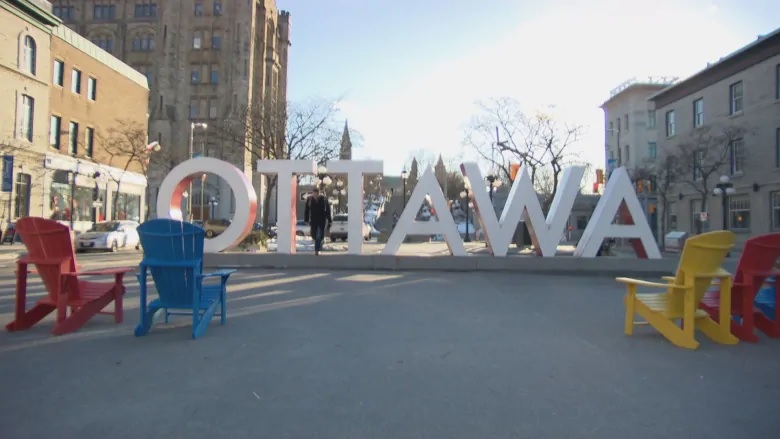A group that says it represents the businesses in Canada hit hardest by the fallout from the COVID-19 pandemic is asking the federal government to extend federal and wage subsidies past its June 5 deadline–until the end of the year–when it hands down its new budget on April 19.
The request, made public today, came in an open letter to Deputy Prime Minister and Finance Minister Chyrstia Freeland, who announced the Liberal government will hand down its first budget in over two years.
In a story published today, CBC News’s Ryan Patrick Jones reports the group, which calls itself the Coalition of Hardest Hit Businesses, says it did a survey of businesses across the tourism, travel, hotel, arts, culture and hospitality industries and found that 60 per cent of the 1,700 that responded said they would go bankrupt without continued access to federal support programs.

Businesses in Canada’s capital were hoping to lure people to the city by offering the chance to snap selfies with the Ottawa sign. Now, businesses across the country are hoping Ottawa’s prime employer will find a way to help them through 2021. (CBC)
The coalition says more than two million Canadians were employed by the businesses it represents before the pandemic arrived.
“The challenges we expect to encounter through 2021 are not the result of individual business decisions; they are entirely pandemic-related and have devastated an otherwise healthy and thriving industry,” the letter says.
“We have every confidence that travel will resume once all barriers are lifted, but unfortunately, we are months away from a world in which borders (provincial and international) are open, mass gathering bans are removed and Canadians are encouraged to travel, rather than stay at home. Until this day comes, our industry will need additional government support to get to the other side.”
The coalition is asking Freeland to prolong the Canada Emergency Wage Subsidy (CEWS) at a rate of 75 per cent for the hardest-hit businesses.
It also wants an extension of the Canada Emergency Rent Subsidy (CERS) with improved support for medium-sized businesses.

Travellers explore the Torngats Mountains National Park on the Labrador Peninsula. Canada’s tourism industry, which employs 750,000 people and accounts for 2 per cent of GDP, had a horrendous year financially in 2020 because of the COVID-19 pandemic. (Barrett & MacKay/Newfoundland and Labrador Tourism)
“Before the COVID-19 pandemic, our industries employed more than 2 million Canadians, representing about 1 in 10 jobs in the country. Our membership consists of primarily Canadian-owned small-or medium-sized businesses who provide significant employment in local communities. Those employed on the front lines in our sector are predominantly women, young people, Indigenous, and new Canadians–populations whose employment has been particularly impacted by the pandemic,” the letter says.
Tourism employs 750,000 people in Canada and accounts for 2 per cent of GDP and whether or not Freeland will heed the letter’s call remains unknown.
In December she “acknowledged the sector took a particularly heavy blow from the prolonged economic lockdown, from politicians at all levels urging people to stay home and from travel restrictions that remain in place in many parts of the country,” according to a story by the CBC’s Chris Hall.
With files from CBC News (Ryan Patrick Jones)







For reasons beyond our control, and for an undetermined period of time, our comment section is now closed. However, our social networks remain open to your contributions.